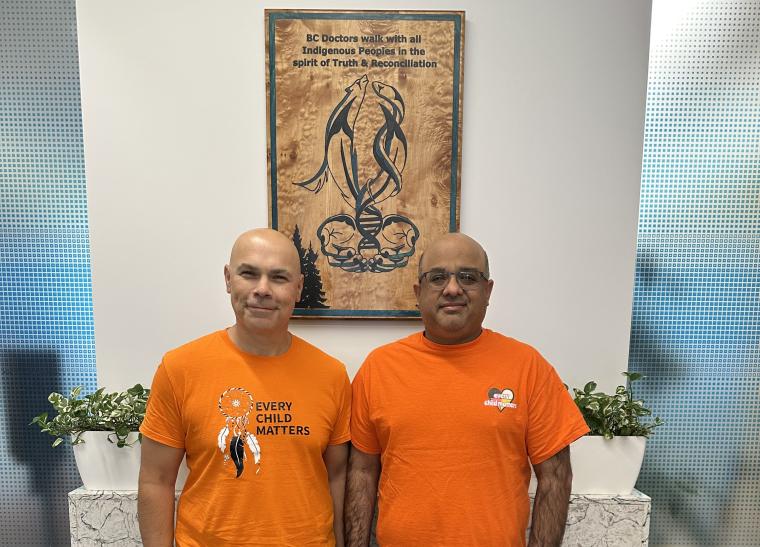- Managing your Practice
-
- Your Benefits
-

Introducing the ultimate Club MD experience
From work to play, and everything in between, we provide you with access to hundreds of deals from recognizable, best-in-class brands, elevating every facet of your life – from practice supports to entertainment, restaurants, electronics, travel, health and wellness, and more. Your Club MD membership ensures that these deals are exclusive to you, eliminating the need to search or negotiate.
Welcome to the ultimate Club MD experience. Your membership, your choices, your journey.
-
- Advocacy & Policy
-
- Collaboration
- News & Events
-

Stay Informed
Stay up to date with important information that impacts the profession and your practice. Doctors of BC provides a range of newsletters that target areas of interest to you.
Subscribe to the President's Letter
Subscribe to Newsletters
-
- About Us
-
Statement on National Day for Truth and Reconciliation
September 27, 2024
News

In recognition of National Day for Truth and Reconciliation on September 30, Doctors of BC honours the survivors of residential schools, the children who never returned home, and recognizes the ongoing injustices as result of that legacy. We acknowledge that systemic and interpersonal anti-Indigenous racism exist within our healthcare system, both of which have deeply affected the health and well-being of Indigenous communities across Canada.
We recognize that physicians, both collectively and individually, have an important role to play when it comes to creating a culturally safe health care system. Great strides have been made, but there is still much work to be done to educate ourselves, to recognize and unlearn colonialism and racism, and to take concrete action to build a health care system free of racism that meets the needs of Indigenous peoples in BC. This is a long-term endeavour that will take continual commitment, humility, and action to achieve.
Doctors of BC is committed to walking with First Nations, Métis, and Inuit peoples on our collective journey to ensure Indigenous patients have access to culturally safe health care. We have embedded a commitment to Truth and Reconciliation as a pillar of our strategic plan, and are developing a Truth and Reconciliation plan in partnership with Indigenous leaders that considers the historical role of the Association and of the profession, and the role we will play moving forward.
We are also committed to supporting physicians on their reconciliation journey. Through the work of the Joint Collaborative Committees (JCCs), we are collaborating with Indigenous partners to provide opportunities for physicians to learn and share the truth of Canada’s oppression of Indigenous people and the ongoing impact of this oppression. More information on our commitment, including ongoing work and programs, can be found on our Cultural Safety & Humility webpage.
National Day for Truth and Reconciliation is an opportunity for us to pause and reflect on the impacts of colonialism and the actions we must take to address anti-Indigenous racism in health care. We will continue to bear witness to, and acknowledge, the harms that Indigenous people have experienced in the past and in the present day. We will also continue to actively foster reconciliation and contribute to a health care system that equitably meets the needs of everyone.
Learning Resources
-
Calls to Action from the Truth and Reconciliation Commission of Canada
-
Calls to Action Accountability: A 2022 Status Update on Reconciliation
Indigenous community events
Books for children and adults
Support services
Crisis and mental health and emotional support lines are available 24/7 through:
-
The National Indian Residential School Crisis Line 1-866-925-4419 (Provides 24-hour crisis support for residential school survivors and their families)
-
The KUU-US Crisis Line 1-800-588-8717 (Support provided to Indigenous people throughout the province of British Columbia)
-
Métis Crisis Line BC 1-833-638-4722 (Support for Métis people throughout the province of British Columbia)
-
Hope for Wellness Help Line 1-855-242-3310 or hopeforwellness.ca for online chat (Available to all Indigenous people across Canada)




